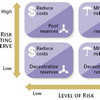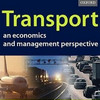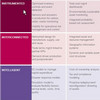 Although “German” traffic from countries like Germany, Austria and Switzerland make up less than 10% of my visitors, I still feel compelled to promote this webinar that will air on 19 April 2011, not only because I myself am fluent in German, but also because it relates directly to my blog topic and to some of my previous posts. In Management von Trade Compliance und Exportkontrollrisiken Innerhalb Einer Internationalen Supply Chain or Managing Trade Compliance and Export Risks in Global Supply Chains, as I would translate it, Torsten Röser and Thomas Kofler take a closer look at the risks and pitfalls involved in trading across borders, and in particular how non-compliance with trade and regulations can severely hamper supply chain operations.
Although “German” traffic from countries like Germany, Austria and Switzerland make up less than 10% of my visitors, I still feel compelled to promote this webinar that will air on 19 April 2011, not only because I myself am fluent in German, but also because it relates directly to my blog topic and to some of my previous posts. In Management von Trade Compliance und Exportkontrollrisiken Innerhalb Einer Internationalen Supply Chain or Managing Trade Compliance and Export Risks in Global Supply Chains, as I would translate it, Torsten Röser and Thomas Kofler take a closer look at the risks and pitfalls involved in trading across borders, and in particular how non-compliance with trade and regulations can severely hamper supply chain operations.
Customs Risk
Global supply chain risks have been the subject of many posts on husdal.com, some of which perfectly mirror the topic of this webinar. Not too long ago I reviewed the Gower Short Guide to Customs Risk by Catherine Truel, where trade agreements, compliance with customs regulations and adherence to export restrictions are an important part of the risk landscape that global supply chains must manoeuvre. That said, customs risks do not appear to be a major driver of change in cross-border supply chains, as Ari Pekka Hameri and Juha Hintsa wrote in their 2006 paper on Assessing the drivers of change for cross-border supply chains.
Is Germany that special?
On the other hand, red tape and customs clearance issues are seen as a significant risk in a survey among German businesses and logistics providers, a survey that takes up a whole chapter in a German book on Supply Chain Risk Management that I reviewed last year. Germany is a major importer and exporter of goods, so it is only natural that risks in global supply chains is a major ingredience in their supply chain management.
Customs changes can come quickly
One thing the webinar focuses on is that customs and export regulations can change quickly, say, when the international community agrees on trade sanctions against certain countries. These sanctions can take effect in a matter of days, if not hours, and businesses entertaining global supply chains need to be prepared for such changes, particularly if dealing with potentially trade-sensitive goods or in politically sensitive regions, a major point in the Gower Short Guide to Political Risk that I reviewed earlier this year.
Verstösse gegen die entsprechend gültige Gesetzgebung können nicht nur Strafen für das Unternehmen selbst, sondern auch für die verantwortlichen Mitarbeiter zur Folge haben. Die aktuellen Ereignisse im Nahen Osten und Afrika zeigen, dass die Weltgemeinschaft innerhalb weniger Tage Sanktionen und Boykotte verabschieden kann. Diese Bestimmungen erlangen meist innerhalb Tagesfrist ihre Gültigkeit und werden somit für Unternehmen zum Bestandteil der Abwicklungsprozesse innerhalb ihrer globalen Supply Chain.
Learning by examples
The webinar is said to feature practical real-life examples of how to deal with trade compliance and how businesses can establish systems and procedures to handle these risks. As mentioned, it is entirely in German, but since I do have a significant number of German speaking readers, this should be interesting for them:
- Risiken und Konsequenzen der Trade Compliance und Exportkontrolle für global tätige Unternehmen
- Auswirkungen auf die strategischen und operativen Prozesse innerhalb der Supply Chain
- Systemunterstützung der globalen, operativen Kontrollprozesse
- Schlüsselmerkmale eines funkionierenden Exportkontrollprozesses
Don’t forget, 19 April 2011, at 1415 GMT.
Link
- wtgwebinar.com: Trade compliance in global supply chains
- linkedin.com: Torsten Röser
- linkedin.com: Thomas Kofler
Related posts
- husdal.com: WTG webinars on supply chain risk
- husdal.com: Customs Risk
husdal.com is an official media partner for WTG Webinars












